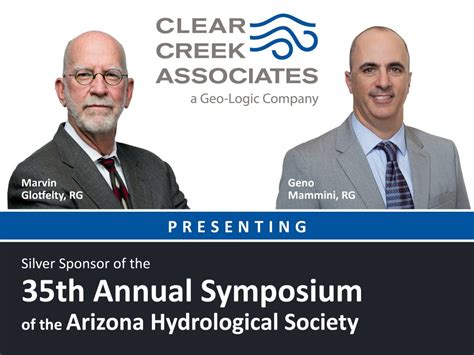Overview
The Arizona Hydrological Society (AHS) is a non-profit organization dedicated to promoting the science and management of water resources in Arizona and beyond. Founded in 1959, the society brings together professionals, researchers, students, and stakeholders with a shared interest in water.

Mission and Vision
The AHS’s mission is to foster knowledge, collaboration, and stewardship of water resources through research, education, and outreach. Its vision is a vibrant and sustainable water future for Arizona and the world.
Key Pillars
- Research and Innovation: AHS promotes scientific research and technological advancements that enhance water management practices.
- Education and Training: The society provides educational resources and opportunities for professionals, students, and the public.
- Collaboration and Networking: AHS facilitates connections and partnerships among stakeholders in the water sector.
- Stewardship and Advocacy: The society advocates for policies and practices that protect and preserve water resources.
Impacts and Accomplishments
Over the past six decades, the AHS has made significant contributions to the field of water management:
- Research Partnerships: Collaboration with universities, research institutions, and industry partners has led to advancements in water treatment technologies, water conservation strategies, and groundwater modeling.
- Education and Outreach: AHS has developed educational programs, including a graduate certificate in Water Resources Management, to train the next generation of water professionals.
- Policy Influence: The society has actively engaged in public policy debates and provided technical expertise to inform water resource decisions.
Current Initiatives
The AHS is currently engaged in several key initiatives to address pressing water challenges in Arizona:
Water Sustainability 2050
This initiative aims to develop a comprehensive plan for securing Arizona’s water future. It involves collaborative efforts to identify sustainable water sources, improve water conservation, and optimize water allocation.
Groundwater Recharge and Management
The society is working to promote groundwater recharge techniques and develop management strategies that balance groundwater extraction with recharge rates.
Water Quality and Treatment
AHS is conducting research and advocating for policies that protect water quality from pollutants and contaminants.
Membership and Benefits
Membership in the AHS offers numerous benefits, including:
- Access to exclusive research publications and technical reports
- Networking opportunities at conferences, workshops, and events
- Continuing education credits
- Discounts on educational programs
- Opportunities to contribute to policy discussions and water resource management initiatives
Pain Points and Motivations
Water management in Arizona faces several key challenges:
- Water Scarcity: Arizona is one of the driest states in the nation, with increasing population and climate change exacerbating water scarcity issues.
- Groundwater Depletion: Excessive groundwater pumping has led to declining groundwater levels and the need for alternative water sources.
- Water Quality Issues: Contaminants from industrial, agricultural, and municipal sources threaten water quality and public health.
- Climate Change Impacts: Climate change is altering precipitation patterns and increasing the likelihood of drought and flooding events.
These challenges motivate the AHS to continue its research, education, and advocacy efforts to find sustainable solutions for Arizona’s water future.
Effective Strategies
The AHS employs several effective strategies to address water management challenges:
- Research and Innovation: Promoting research and funding innovative technologies to improve water conservation, treatment, and management practices.
- Education and Training: Providing educational resources and programs to equip professionals, students, and the public with the knowledge and skills to make informed water decisions.
- Collaboration and Networking: Facilitating partnerships and collaborations among stakeholders to share knowledge, resources, and best practices.
- Policy Advocacy: Advocating for policies and regulations that protect water quality, promote conservation, and ensure sustainable water management practices.
Common Mistakes to Avoid
Common mistakes that can hinder effective water management include:
- Overreliance on Groundwater: Excessive groundwater pumping can lead to aquifer depletion and environmental consequences.
- Water Conservation Neglect: Overlooking water conservation measures can exacerbate water scarcity and increase the cost of water.
- Lack of Collaboration: Failing to involve all stakeholders in decision-making processes can result in suboptimal outcomes.
- Ignoring Climate Change Impacts: Not considering the potential effects of climate change on water availability and quality can lead to long-term challenges.
New Applications and Creative Solutions
To address Arizona’s water challenges, the AHS encourages innovative thinking and the exploration of new applications:
- Artificial Intelligence (AI) in Water Management: AI can be used to monitor water usage, optimize water distribution systems, and predict drought conditions.
- Water-Efficient Landscaping: Promoting water-wise landscaping practices to reduce outdoor water consumption.
- Stormwater Harvesting: Capturing and storing stormwater runoff for non-potable uses, such as irrigation or aquifer recharge.
- Hybrid Water Systems: Integrating multiple water sources, such as surface water, groundwater, and rainwater, to enhance water security.
Useful Tables
| Water Use Sector | Percentage of Total Water Use |
|---|---|
| Agriculture | 72% |
| Municipal | 18% |
| Industrial | 10% |
| Arizona Groundwater Basin | Projected Groundwater Depletion by 2050 |
|---|---|
| Tucson Basin | 4.9 million acre-feet |
| Phoenix Active Management Area | 2.7 million acre-feet |
| Prescott Active Management Area | 0.5 million acre-feet |
| Water Conservation Measures | Average Water Savings |
|---|---|
| Low-flow Toilets | 25% reduction in toilet water use |
| Drip Irrigation | 30-50% reduction in outdoor water use |
| Xeriscaping | 50-75% reduction in outdoor water use |
| Water Quality Parameters | Acceptable Levels |
|---|---|
| Nitrate-Nitrogen | Less than 10 mg/L |
| Total Dissolved Solids | Less than 500 mg/L |
| Arsenic | Less than 10 µg/L |
